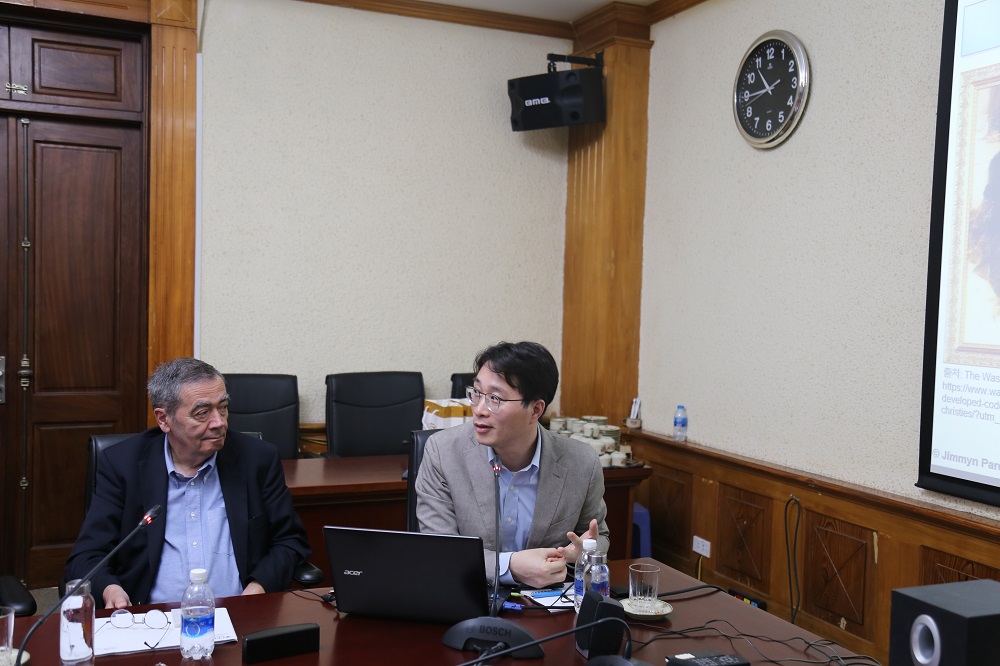
From an economic perspective, the two professors pointed out the reasons behind the phenomenon of the Korean cultural wave and the remarkable development of the Korean entertainment industry, specifically in the fields of film and music.
Professor Patrick Messerlin began with specific statistics on the supply and demand of the South Korean film industry in comparison with Japan, France, the UK, the US, and China. According to these statistics, in 2018, South Korea had the highest per capita movie theater attendance rate (4.2), followed by the US (3.8); the per capita rate of domestically produced films in South Korea was also the highest (8.5). Regarding film quality, based on the average scores of films on reputable online platforms from 2009 to 2018, South Korea also ranked first with scores of 6.48 on IMDb, 75.2 on Metacritics, and 67.0 on Rotten Tomatoes. Notably, South Korea achieved these accomplishments despite having the lowest government subsidy budget for the film industry (only $136 million compared to $1,585 million for the US).
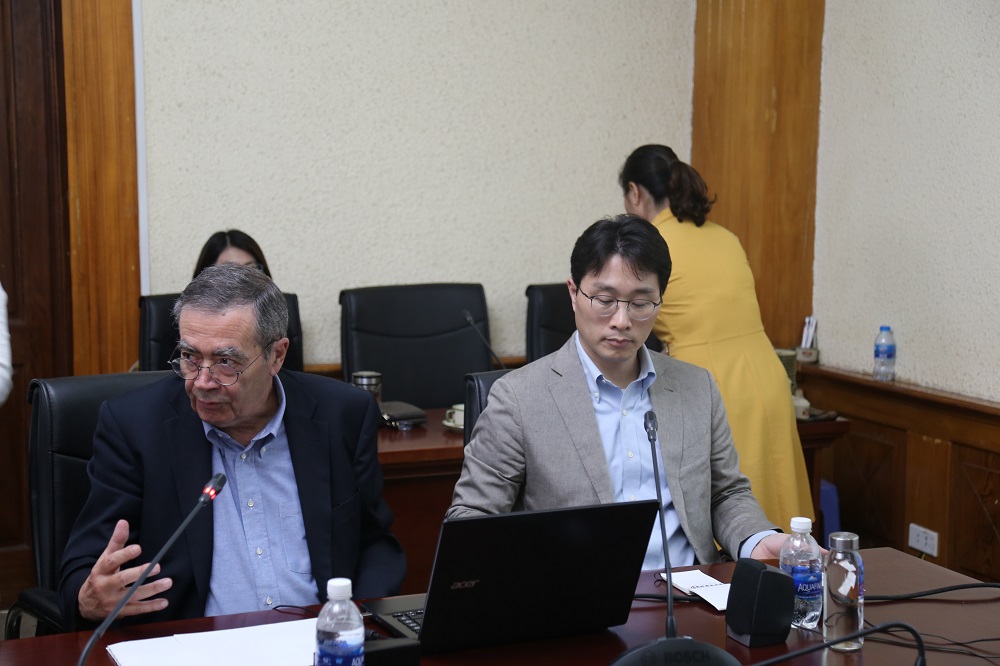
Professor Patrick Messerlin presents
Explaining the success of the South Korean film industry, Professor Patrick Messerlin argues that it is due to the country's bold abandonment of protectionist policies and its opening of the industry to the world. Under the previous protectionist mechanism, South Korean film companies focused only on mass production or importing foreign films to meet domestic consumption quotas; this resulted in South Korean films lacking quality and not gaining recognition from international audiences. After South Korea and the United States signed film cooperation agreements in 1986-1988, the liberalization of the South Korean film industry was implemented. The South Korean government opened its market to Hollywood films. Under this pressure, South Korean film companies were forced to innovate their filmmaking methods by investing more in quality and learning from foreign film studios (for example, the collaboration between CI Korea and Dreamworks). As a result, from 1988 to 2005, although the number of South Korean films produced never exceeded 100, total revenue skyrocketed sevenfold, from 1 billion won to over 7 billion won. Conversely, total revenue of foreign films in South Korea during this period decreased from over 3 billion won to under 2 billion won.
Thus, although not favored by the government with many subsidies, by taking advantage of the open-door policy, South Korean film companies have developed rapidly, creating a competitive edge compared to other countries. Professor Patrick Messerlin considers this a model of success that other film industries should learn from, including his own homeland, France.
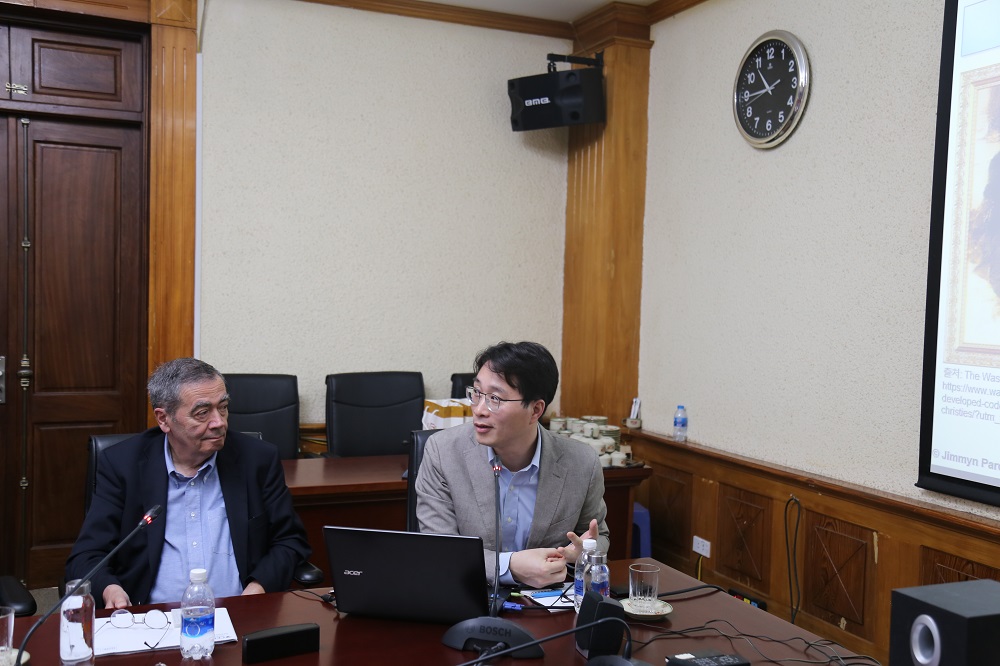
Professor Jimmyn Parc presents
From a similar perspective, Professor Jimmyn Parc shared that while Japanese music was popular in South Korea during the 1980s and 1990s, the Korean music industry experienced remarkable growth starting in the 2000s with the increasing popularity of the internet. Korean entertainment companies shifted their business model from selling CDs to providing free music online and investing in concert tours. They not only diversified their music production teams to include foreign members but also leveraged the audiovisual media of the digital age. As a result, Korean music groups gained increasing international recognition, and parent companies like SM, VG, and JYP reaped enormous profits.
Professor Jimmyn Parc concluded that proactively expanding the market, leveraging the positive effects of globalization and technological advancements, has helped Korean music rise to international influence, becoming the world's sixth-largest music market in 2018. Similar to Professor Patrick Messerlin, he considers this a success story that any country can learn from.
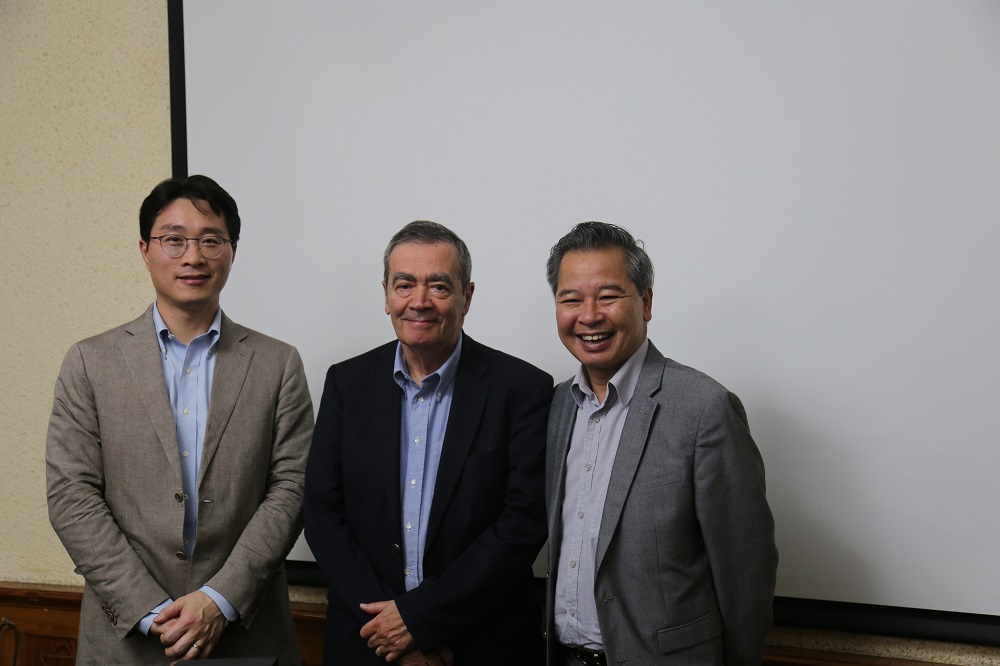
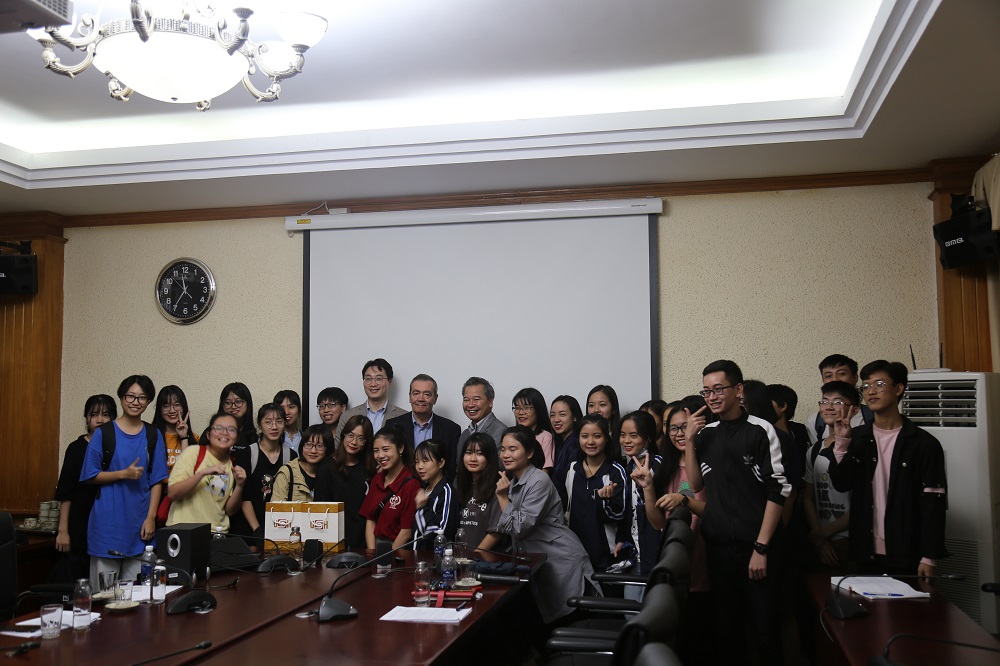
Professor Pham Quang Minh and faculty and students of the university took a commemorative photo with the speakers.
Following their presentations, the two professors received feedback and comments from the audience on issues such as the advantages and disadvantages of the open-door policy for the entertainment industry; the role of the government in the development of the Korean entertainment industry; the impact of economic development on soft power and the Korean Wave; and the negative aspects of rapid development and the consequences of fierce competition for artists in the entertainment industry.
Author:Tran Minh
Newer news
Older news